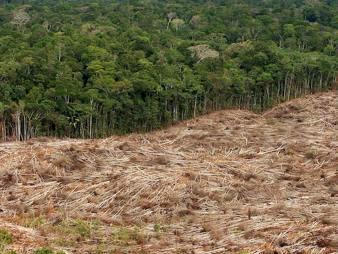 Two thirds of the world’s largest companies are reporting exposure to water risks, some of which have potential to limit growth. The news comes amid mounting shareholder concern around the business impacts from water scarcity, accessibility and poor water quality.
Two thirds of the world’s largest companies are reporting exposure to water risks, some of which have potential to limit growth. The news comes amid mounting shareholder concern around the business impacts from water scarcity, accessibility and poor water quality.
The latest Annual Global Water Report, released today by CDP, an international NGO that drives sustainable economies and holds the largest collection of company-reported environmental data, finds that 68% of businesses report exposure to water risk which could generate a substantive change in their business, operations or revenue. Twenty-two percent of companies anticipate that issues around water could limit the growth of their business.
The analysis is based on the water management data of 174 companies listed on the FTSE Global 500 Equity Index provided to CDP at the request of 573 institutional investors with US $ 60 trillion in assets. The number of investors pressing for corporate accountability on water and related information through CDP has increased by more than 300% since 2010, reflecting growing shareholder attention to water challenges.
Given almost half of the 853 reported risks – such as closure of operations and decrease in shareholder value – are expected to impact now or in the next three years, companies could quickly find themselves at a competitive disadvantage. In addition, the report highlights that water pressures will be most keenly felt in emerging markets where companies see new opportunities for growth, such as Brazil, China, India and Mexico. This is a message likely to be keenly understood in South America’s biggest and wealthiest city, Sao Paulo, which is widely reported to be dangerously close to running out of water.
Companies such as Diageo, H&M, Merck and Unilever are, however, beginning to respond to this risk, with three quarters of companies evaluating how water quality and quantity affects their growth strategy. This change comes as water increasingly moves from an operational issue into the boardroom: ultimate responsibility for water issues lies at board level in 62% of respondents, up from 58% in 2013, with the vast majority of companies (90%) integrating water into their group-wide business strategies, and 82% setting goals and targets to reduce water use.
Leading companies are investing in order to reduce the value at risk from water stress and capitalize on opportunities such as cost savings or increased revenues. In fact, three quarters report that water offers operational, strategic or market opportunities. Chemicals giant BASF estimates that water saving, recycling, reuse and drinking water treatment products offer the company potential sales of US $ 1 billion up to 2020. US electronics manufacturer Cisco is already saving US $ 1 million a year while using less water as a result of a change to a soldering practice.
However, despite these positive actions, disclosure levels of the Global 500 have not kept up with investor demand for information, stagnating over the past year. 42% of the companies requested by investors to divulge information related to their water risks failed to do so. The energy sector has the lowest level of disclosure, despite companies in this sector reporting high levels of exposure to water risks. The largest persistent non-disclosing companies by market capitalization and identified as having potentially the greatest impact on water resources include NIKE Inc and Exxon Mobil.
Paul Simpson, Chief Executive Officer at CDP, says, “Water is an essential resource for any business. The potential for water-related problems to damage brand value or limit corporate growth is increasingly understood. We live in a time of unprecedented demand for water and have seen the number of investors seeking accountability from companies on this issue through CDP rise more than fourfold in just four years. It is of grave concern that such a significant group of companies is failing to communicate management of water risks to their shareholders through our global system.”
“If water scarcity prevails, companies could face constraints to growth,” says Constantina Bichta, Manager, Environmental, Social and Governance Research at Boston Common Asset Management. “They may not be able to provide their core products and services, or may lose the ability to expand their business. As investors in these companies, this is something we are deeply concerned about. Companies with large supply chains also run the risk of finding themselves in conflict with communities over access to water issues, thus putting their license to operate at risk.”
CDP’s Global Water Report 2014, titled “From Risk to Value Creation: How Corporate Stewardship is Driving Innovation in Water”, is launched today online, at the Conference of the EU Innovation Partnership on Water in Barcelona and at the Sustainable Brands Conference in London. It is accompanied by the release of CDP’s wider global water dataset in an easily accessible online platform.
Check the following link to read/download the Full Report:
https://www.cdp.net/CDPResults/CDP-Global-Water-Report-2014.pdf
Source: CDP.
About CDP
CDP is an international, not-for-profit organization providing the only global system for companies and cities to measure, disclose, manage and share vital environmental information. CDP works with market forces, including 767 institutional investors with assets of US $ 92 trillion, to motivate companies to disclose their impacts on the environment and natural resources and take action to reduce them. CDP now holds the largest collection globally of primary climate change, water and forest risk commodities information and puts these insights at the heart of strategic business, investment and policy decisions. For more information, visit www.cdproject.net.



















